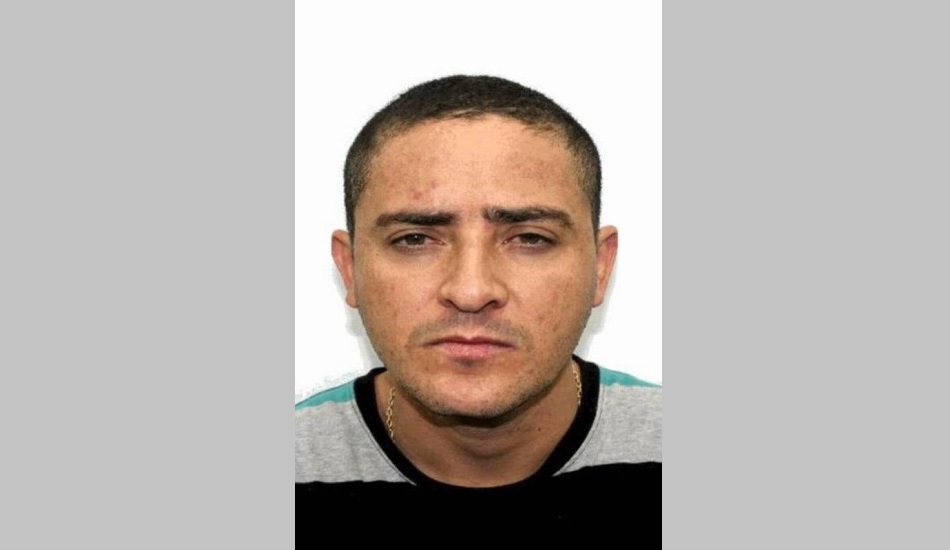RIO DE JANEIRO, BRAZIL – Rio’s Civil Police arrested at least 33 suspects in a week in operations to suppress the financial structure of militias active in the state.
Among the activities targeted by the agents, is the operation of illegal trade and alternative transport.
On Wednesday, October 21st, police closed eight drugstores, seized thousands of prescription drugs, and arrested ten people allegedly in charge of these establishments.
According to investigations, the drugstores are used by the militia led by Wellington da Silva Braga, a.k.a. Ecko, to generate profit and launder the criminal organization’s money.
This drugstore chain consists of dozens of stores in the Rio Metropolitan Region and in neighborhoods such as Campo Grande, Santa Cruz, Cosmos, Paciência, Senador Camará, and Madureira.

The accused will be charged with crimes against public health, tax evasion, and money laundering.
The operation was conducted by DECON (Consumer Affairs Department) and DGPE (General Department of Specialized Police) agents and involved CRF (Regional Pharmacy Council) inspectors.
The Council claims to have found a number of irregularities, such as suspected fraudulent documents, lack of sanitary licensing, medication subject to special control with no confirmed source, and establishments operating illegally and with no registration.
The CRF also reports that paramilitary groups threaten and obstruct inspection activities in these drugstores.
On October 16th, in another operation targeting Ecko’s militia economic branch, the largest in the state, agents raided a drugstore in Nova Iguaçu, in the Baixada Fluminense region west of Rio de Janeiro.
In this operation, the police arrested 18 suspects and closed down not only the drugstore but also a shopping mall for counterfeit clothes, a gas depot, a restaurant used to sell basic food baskets, and two Internet providers with stolen pay-TV signals, with thousands of subscribers.
The Civil Police reported that they arrested the head of the restaurant in the act for active corruption due to the fact that he tried to bribe the agents.
On Thursday, October 22nd, the force arrested five more men allegedly part of the militia led by Ecko in the cities of Itaguaí and Seropédica.
Among the crimes under investigation are the irregular collection of security and housing fees, illegal cable TV installations, storage and irregular trade of gas and water cylinders, exploitation and illegal building, and other environmental crimes.
The investigation also targets the sale of counterfeit products, smuggling, embezzlement, irregular alternative transport, and stores operated by the militia and used for money laundering.
Also on Wednesday, the police seized 168,000 illegally imported TV box sets at the port of Itaguaí. The equipment is considered the new illegal cable TV by the investigators because it is used to broadcast pirated signals of television channels.
The CORE (Special Resources Office) coordinator, detective Fabrício Oliveira, estimates that the seizure generated a loss of over R$100 million (US$20 million) for militias operating in the region.
On that same day, another operation was triggered to seize vehicles used as alternative transport operated by Ecko’s militia in Nova Iguaçu.
Since Claudio Castro took office as acting governor and changed leadership positions in the corporation, operations against the militias have intensified. Last week, 17 suspected members of Ecko’s group were killed within 24 hours in separate Civil Police operations.
At the time, the force’s undersecretary of operations, Rodrigo Oliveira, said arresting militiamen is not enough and their sources of income must be targeted.
“There is no point in us removing the militiamen if we do not disrupt the gang’s financial branch. It will continue to exist. So the two fronts must be worked on, arresting militiamen and disrupting the organization’s financial structure,” he said.
The current administration has been working on a system it called O&A (Operation and Asphyxia). After resorting to intelligence efforts, the police conduct a timely operation against the criminal group.
Then specialized police departments conduct operations in the region where the militia is active, in which agents stay for days suppressing the influx of money into the criminal organization.
Historically, paramilitary groups, typically composed of state and civil police officers, prison guards and firemen, have profited from extortion of community residents through the sale of “protection”, bottled gas, and access to pay-TV.
However, in recent years they have spread their tentacles and currently charge for medical appointments at public hospitals and even to bury garbage in landfills they built. The sale of illegal properties, like the two buildings that collapsed in April 2019 in the Muzema community in the western part of the capital, represents another source of financial support for the criminal organization.
An unprecedented study released on Monday, October 19th, showed that in 2019 the militias had control of 41 of 161 neighborhoods in Rio, which represents 57.5 percent of the city’s territory. Over two million residents are under militia control.
This means that the militias, which in their current configuration began to develop in the 2000s, now outnumber territorial drug trafficking factions established since the 1980s such as CV (Comando Vermelho), ADA (Amigos dos Amigos), and TCP (Terceiro Comando Puro).
Source: Folhapress

